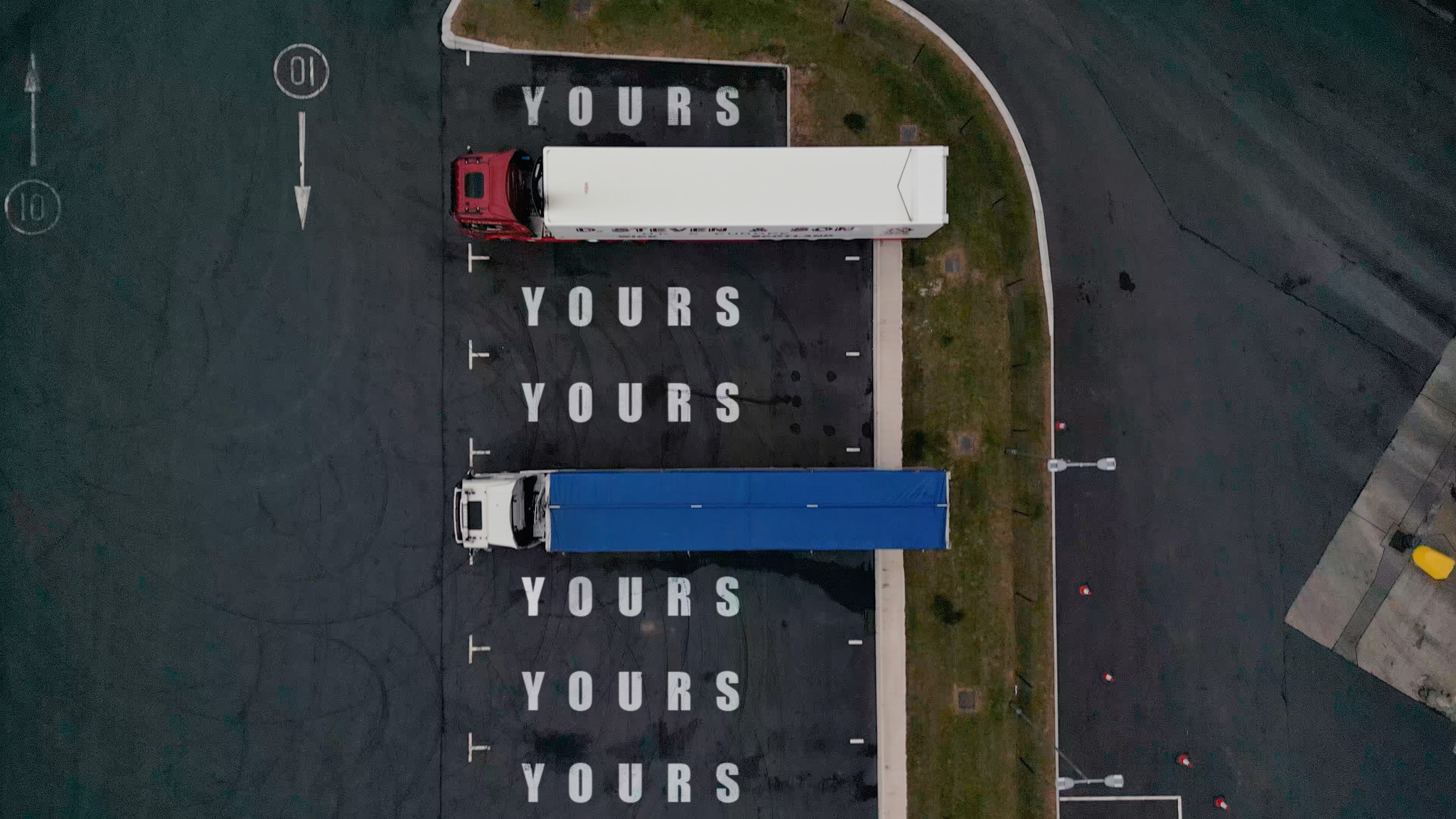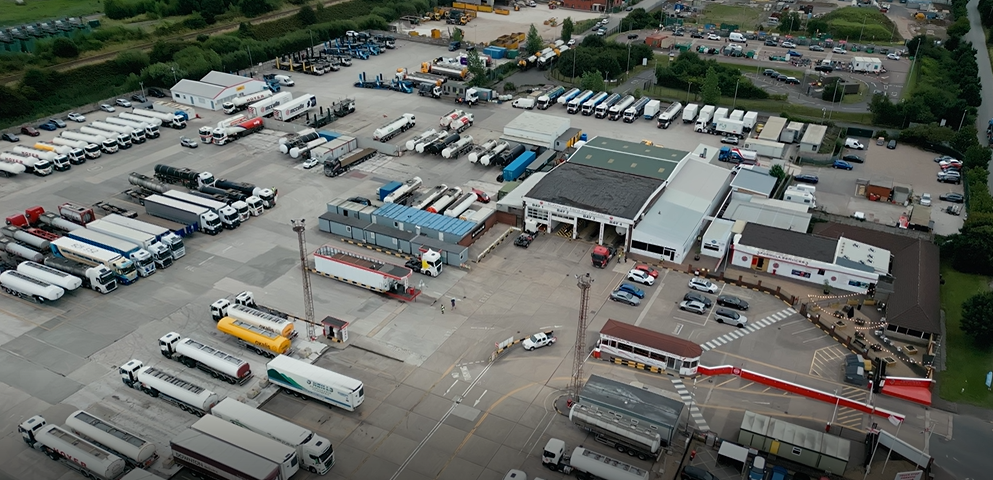
Miranda Blake
Desafios e soluções na gestão moderna dos transportes
Criado: 16/12/2024
•
Atualizado: 16/12/2024
A gestão moderna dos transportes é uma abordagem estratégica para planear, organizar e controlar o movimento eficiente e eficaz de bens e materiais desde a origem até ao destino. Envolve a utilização da tecnologia e de informações baseadas em dados para otimizar os processos de transporte, reduzir os custos e aumentar a satisfação do cliente.
Neste blogue, exploramos os principais desafios e soluções relacionados com este assunto.
Principais desafios
Uma das questões mais prementes com que as frotas têm de lidar é a gestão das despesas de combustível. Estas representam uma parte significativa das despesas operacionais e a sua volatilidade pode causar estragos nos processos de orçamentação e na rentabilidade global. A natureza imprevisível dos preços dos combustíveis cria um efeito de cascata em toda a cadeia de abastecimento, obrigando as empresas a tomar decisões difíceis sobre a absorção de custos ou aumentos de preços, afectando potencialmente a sua competitividade. No entanto, as empresas com visão de futuro estão a adotar estratégias para mitigar os riscos associados:
Celebração de contratos de cobertura de combustível para fixar os preços durante um determinado período, estabilizando assim as despesas
Investir em veículos modernos e eficientes em termos de combustível para reduzir o consumo e os custos globais
Explorar fontes alternativas de combustível, como o biodiesel ou o gás natural comprimido, para atuar como amortecedor contra as flutuações dos preços dos combustíveis tradicionais
Uma das soluções - [SNAP Fuel] (https://snapacc.com/snap-fuel/) - permite uma gestão de combustível sem descontinuidades:
Os operadores de frotas podem aceder a relatórios detalhados sobre as despesas, proporcionando transparência de custos e ajudando-os a identificar tendências e áreas de melhoria.
Ao estabelecer uma parceria com a Certas Energy, os utilizadores podem aceder a taxas de combustível com desconto, reduzindo ainda mais as despesas.
Congestionamento de tráfego
Outra questão é o tráfego. À medida que as populações urbanas aumentam, a pressão sobre as infra-estruturas existentes intensifica-se, conduzindo a problemas em toda a cadeia logística. Os atrasos tornam-se comuns, o consumo de combustível dispara e os custos operacionais aumentam, ao mesmo tempo que a satisfação dos clientes diminui devido aos prazos de entrega alargados.
Existem várias tácticas para contrariar os impactos negativos desta situação:
A utilização de software avançado [de otimização de rotas] (https://snapacc.com/newsroom/route-optimisation-with-fleet-management-software-snap-account/) pode ajudar a identificar os percursos mais eficientes, reduzindo o tempo de viagem e o consumo de combustível.
A integração de dados de tráfego em tempo real nas operações pode permitir ajustes dinâmicos dos itinerários com base nas condições actuais.
O desenvolvimento de planos de logística urbana personalizados pode permitir que as empresas enfrentem desafios específicos da cidade, como zonas de acesso restrito e horas de ponta do tráfego.
Perturbações na cadeia de abastecimento
Desde as catástrofes naturais aos acontecimentos geopolíticos e à escassez de mão de obra, as perturbações são outra questão com que as frotas se deparam, provocando atrasos, aumento dos custos e diminuição dos níveis de serviço, o que põe em causa a resiliência dos sistemas de gestão dos transportes.
Para fazer face a estas interrupções, as organizações podem adotar várias estratégias:
Diversificação:** A aquisição de materiais e serviços de vários fornecedores pode reduzir a dependência de um único fornecedor e atenuar os riscos.
Avaliações de risco:** A realização regular destas avaliações pode ajudar a identificar vulnerabilidades na cadeia de abastecimento e apoiar o planeamento de contingência.
● Monitorização em direto: A implementação de tecnologias que proporcionem visibilidade em tempo real da cadeia de abastecimento pode melhorar a capacidade de resposta e acelerar a tomada de decisões.

Soluções inovadoras
À medida que as tecnologias continuam a evoluir e a integrar-se, prometem remodelar o futuro da gestão dos transportes, abordando questões antigas e abrindo novas possibilidades de crescimento e inovação.
Telemática:** Os sistemas de localização de veículos fornecem dados em tempo real sobre a localização, a otimização de rotas e o comportamento do condutor, facilitando a tomada de decisões mais informadas.
Dispositivos IoT:** Estes podem monitorizar a saúde do veículo, o consumo de combustível e as condições da carga, garantindo um desempenho e segurança ideais.
IA e aprendizagem automática:** Através destes, pode permitir a análise preditiva e a previsão da procura, melhorando a otimização de rotas e a gestão de inventário.
Blockchain:** A implementação desta tecnologia pode melhorar a transparência, a segurança e a rastreabilidade da cadeia de abastecimento, promovendo a confiança entre as partes interessadas.
Retenção e formação de condutores
A escassez de motoristas é outro desafio da gestão dos transportes, que o Ministério dos Transportes está a tentar resolver abrindo uma consulta sobre formas de a atenuar. Pedimos aos camionistas que expressassem as suas opiniões sobre a proposta na [página do Facebook da SNAP] (https://www.facebook.com/snapaccount). Embora muitos não tenham comentado o esquema, 72,5% contestaram o termo "falta de motoristas", rotulando-o de alarmista. Em vez disso, [enumeraram várias razões pelas quais os camionistas experientes abandonam o sector] (https://snapacc.com/newsroom/hgv-drivers-challenge-the-term-driver-shortage/).
Por conseguinte, atrair e reter condutores qualificados continua a ser de grande importância. O governo [introduziu várias medidas] (https://snapacc.com/newsroom/addressing-the-hgv-driver-shortage-in-the-uk-in-20242025/), mas os gestores de frotas e os camionistas podem tomar medidas por si próprios:
Remuneração e benefícios competitivos:** A oferta de pacotes atractivos pode ajudar a atrair os melhores talentos num mercado de trabalho competitivo.
Acordos de trabalho flexíveis:** A sua oferta pode aumentar a satisfação no trabalho e reduzir as taxas de rotatividade.
Formação avançada e desenvolvimento de competências:** O investimento em programas contínuos pode equipar os condutores com as capacidades necessárias para se destacarem nas suas funções e se adaptarem às novas tecnologias.
Outra forma importante de manter os condutores é tornar o seu trabalho o mais fácil possível - e isso inclui o pagamento do estacionamento e da lavagem. Felizmente, existe o SNAP.
Obter apoio do SNAP
Para saber mais sobre [os nossos serviços] (https://snapacc.com/) e a forma como podem ajudar a gestão de transportes, contacte-nos através do número +44 (0)1603 777242.



